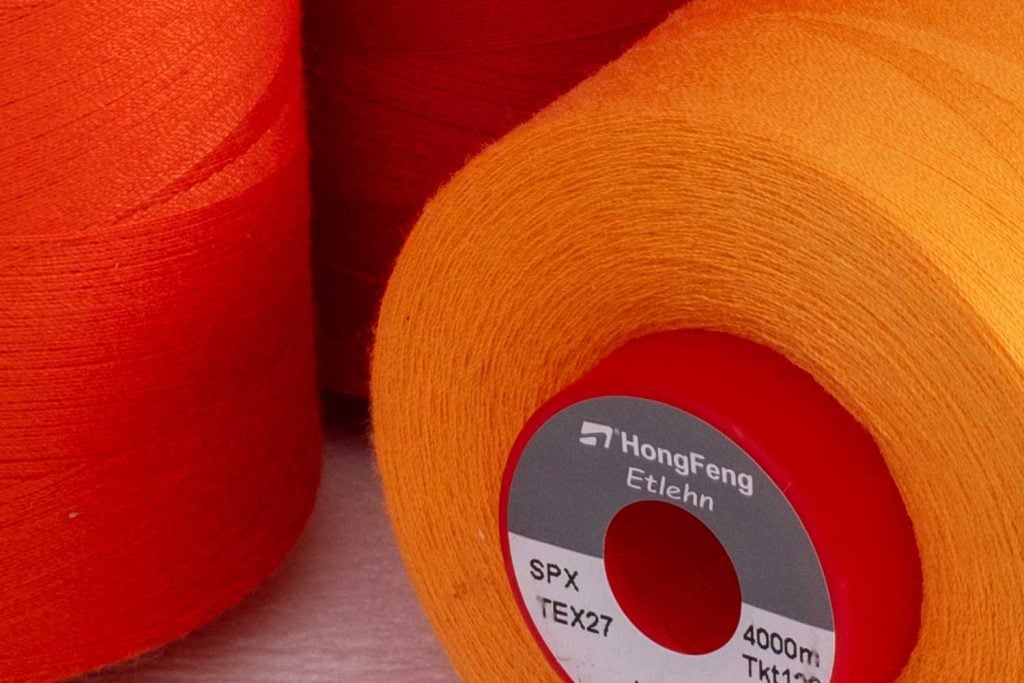Sewing threads play a pivotal role in the world of textiles, ensuring the durability and longevity of garments, accessories, and various fabric-based products. When it comes to polyester threads, there are two popular options: spun polyester sewing thread and regular polyester thread. This article delves into the debate surrounding their strength and performance. By exploring their characteristics, manufacturing processes, and practical applications, we aim to shed light on which thread reigns supreme in terms of strength and reliability.
Table of Contents
Understanding Spun Polyester Sewing Thread
Spun polyester sewing thread is renowned for its robustness and ability to withstand high levels of stress. It is produced through a spinning process that involves twisting together short staple polyester fibers. This results in a thread that possesses excellent tensile strength, elongation, and resistance to abrasion. The spun polyester thread is known for its smooth appearance, soft feel, and optimal performance in various sewing applications.
Exploring Regular Polyester Thread
Regular polyester thread, on the other hand, is manufactured using continuous filament polyester fibers. These long, continuous strands are twisted together to form a thread. Regular polyester thread is favored for its versatility, affordability, and availability in a wide range of colors and thicknesses. It offers good strength and stability, making it suitable for general sewing projects and everyday use.
Comparing Strength: Spun Polyester vs. Regular Polyester
To determine which thread reigns supreme in terms of strength, let’s compare their key characteristics:
- Tensile Strength: Spun polyester sewing thread, with its twisted short staple fibers, exhibits higher tensile strength compared to regular polyester thread made of continuous filaments. This superior strength allows spun polyester thread to withstand greater stress and strain without breaking.
- Elongation: Spun polyester thread also possesses higher elongation properties, meaning it can stretch more before reaching its breaking point. This elongation ability provides added resilience and flexibility to the thread, making it ideal for applications where stress and movement are common.
- Resistance to Abrasion: Both spun polyester and regular polyester threads offer good resistance to abrasion. However, spun polyester thread has an edge in this aspect due to its tightly twisted fibers, which enhance its ability to withstand friction and rubbing against various surfaces.
Applications and Recommendations
Both spun polyester sewing thread and regular polyester thread have their own strengths and applications. Here’s a breakdown:
- Spun Polyester Sewing Thread:
- Ideal for heavy-duty sewing projects, such as upholstery, outdoor gear, and leather goods.
- Recommended for applications that require exceptional strength, durability, and resistance to stress and tension.
- Regular Polyester Thread:
- Well-suited for general sewing purposes, including garment construction, quilting, and everyday repairs.
- Widely used for lightweight to medium-weight fabrics where extreme strength is not required.
Strength Comparison of Spun Polyester and Regular Polyester Thread
| Thread Type | Tensile Strength | Elongation | Abrasion Resistance |
|---|---|---|---|
| Spun Polyester Sewing Thread | High | High | Excellent |
| Regular Polyester Thread | Good | Moderate | Good |

Conclusion
When it comes to strength, spun polyester sewing thread emerges as the champion, with its higher tensile strength, greater elongation, and superior resistance to abrasion. This makes it the go-to choice for heavy-duty applications and projects that demand exceptional durability. However, regular polyester thread holds its ground as a reliable and versatile option for everyday sewing needs.
As you embark on your next sewing adventure, consider the specific requirements of your project and choose the thread that aligns with your desired strength, performance, and durability. Whether it’s the robustness of spun polyester or the versatility of regular polyester, both threads have their place in the sewing world, ensuring that your stitches withstand the test of time.
